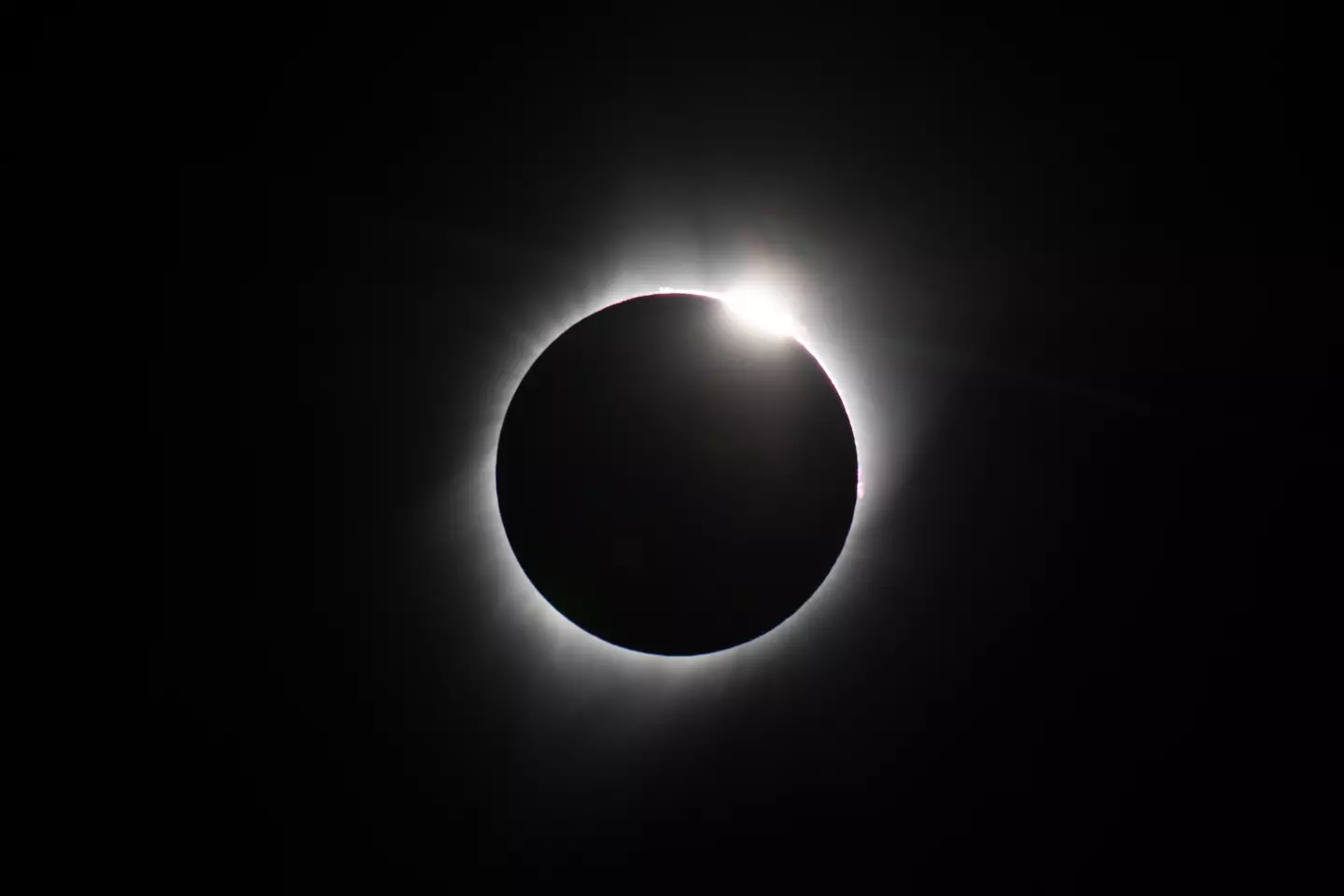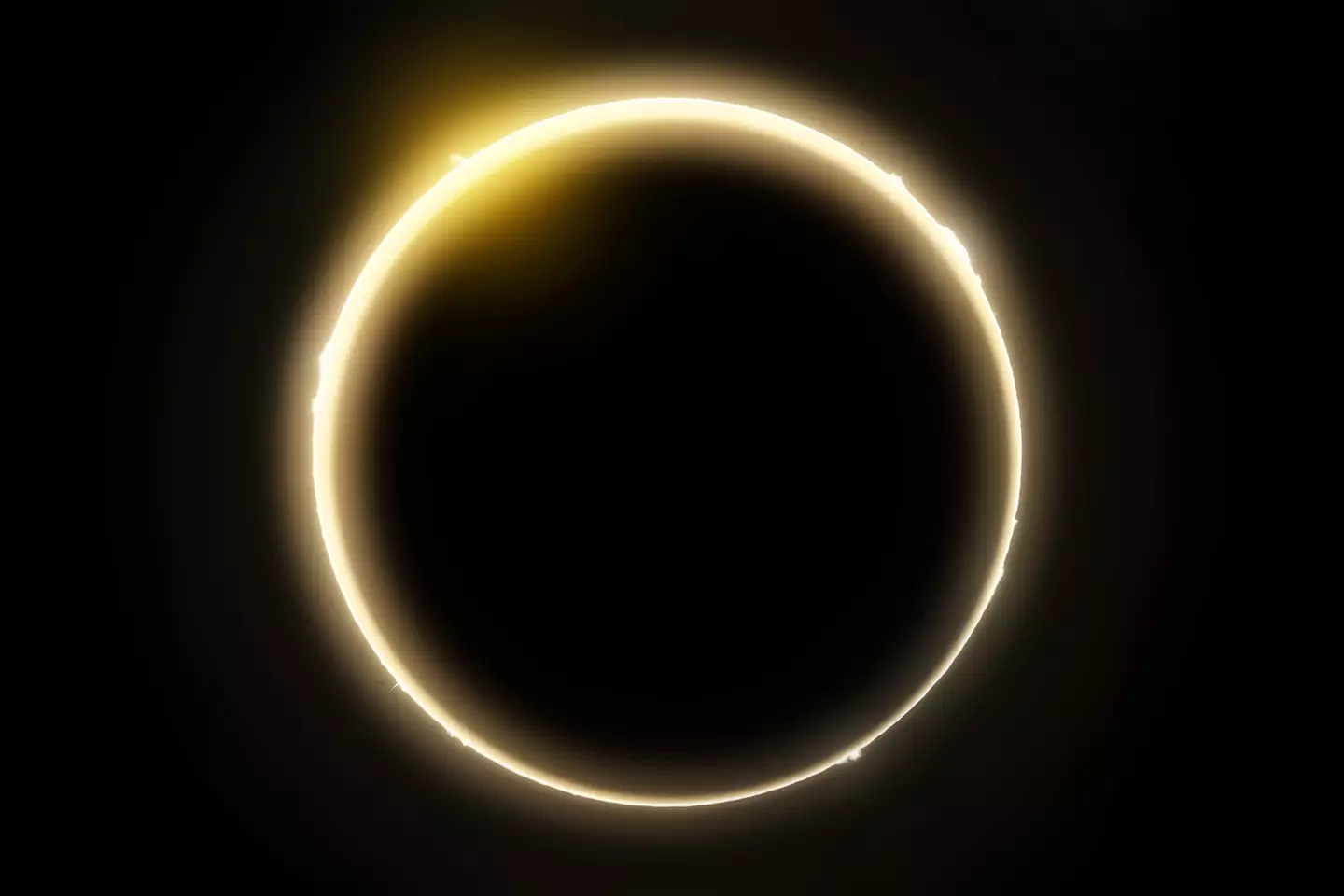.png)
If you didn't already know, we are witnessing an incredible cosmic event today (8 April)... well, some of us at least.
A solar eclipse is currently taking place, with those across the North America lucky enough to bear witness to it.
Over 31 million in the Mexico, the US and Canada will be able to see a total solar eclipse, their first since 2017, which is when the moon appears to cover the entire face of the Sun.
Partial eclipses on the other hand are more common, and can occur up to five times a year, when the moon partially covers part of the Sun.
Advert

This is what many people in the UK were looking forward to, with the ideal time for viewing being given as 7.52pm to 8.51pm to view the spectacle.
In fact, those living in the likes of Cardiff, Edinburgh, Glasgow, Leeds, Liverpool, Manchester and parts of Cornwall were set to get a glimpse of what the Americans have.
Though you should never look directly at the Sun - or even use your phone to - many were beyond excited for the event, especially since the total eclipse had already hit parts of Mexico earlier today.
With a small window being given to the people of the UK, you can understand that there was a lot of anticipation leading up to this evening.
Advert
However, it looks like things haven't exactly gone to plan - and you'll never guess why.

Yes - the UK's crap weather has let millions down, yet again.
If you don't understand why or how it has impacted the partial eclipse, take a glance out of the window. Typical.
Several angry Brits have taken to X to share their frustrations over their already partial experience being ruined.
Advert
One user posted: "The sucky thing is, I live where there'd actually be the most coverage of the eclipse in the whole UK, and its cloudy lmao"
Another commented: "Glad that the total eclipse wasn't over the UK (again) cos this weather is GRIM."
A third said: "I FINALLY get to see a Solar Eclipse!...
"It's the cloudiest day I've ever seen in the UK".
The window is sure to come and pass with no sight of a break in the clouds, so we may be made to wait for the next one, which is pencilled in for March 2025.
Advert
So that's around the same time, with similar weather. Sigh.
Don't worry though, the next total solar eclipse in the UK is meant to be in *checks notes* 2090 - sorry about that.

However, if you’re in the US, buckle up because you're actually first to see it all unfold.
The solar eclipse just entered Mexico’s Pacific coast, and drifted through Texas and then the Midwest, Mid-Atlantic and New England, before making its way over eastern Canada into the Atlantic.
Advert
With around four-and-a-half minutes in Mexico and a minute in Montreal, there isn’t any time to waste if you want to see it fully.
From Mexico's Pacific coast at around 11.07am PDT, spectators were wowed by its sight.
The areas within the eclipse’s path are Texas, Arkansas, Missouri, Illinois, Kentucky, Indiana, Ohio, Pennsylvania, New York, Vermont, New Hampshire, and Maine, Southern Ontario, Quebec, New Brunswick, Prince Edward Island, and Cape Breto and lastly, Newfoundland.
NASA’s YouTube channel and website is also live streaming the event just in case you can’t make it out on time, or if you aren’t in an area with visibility.